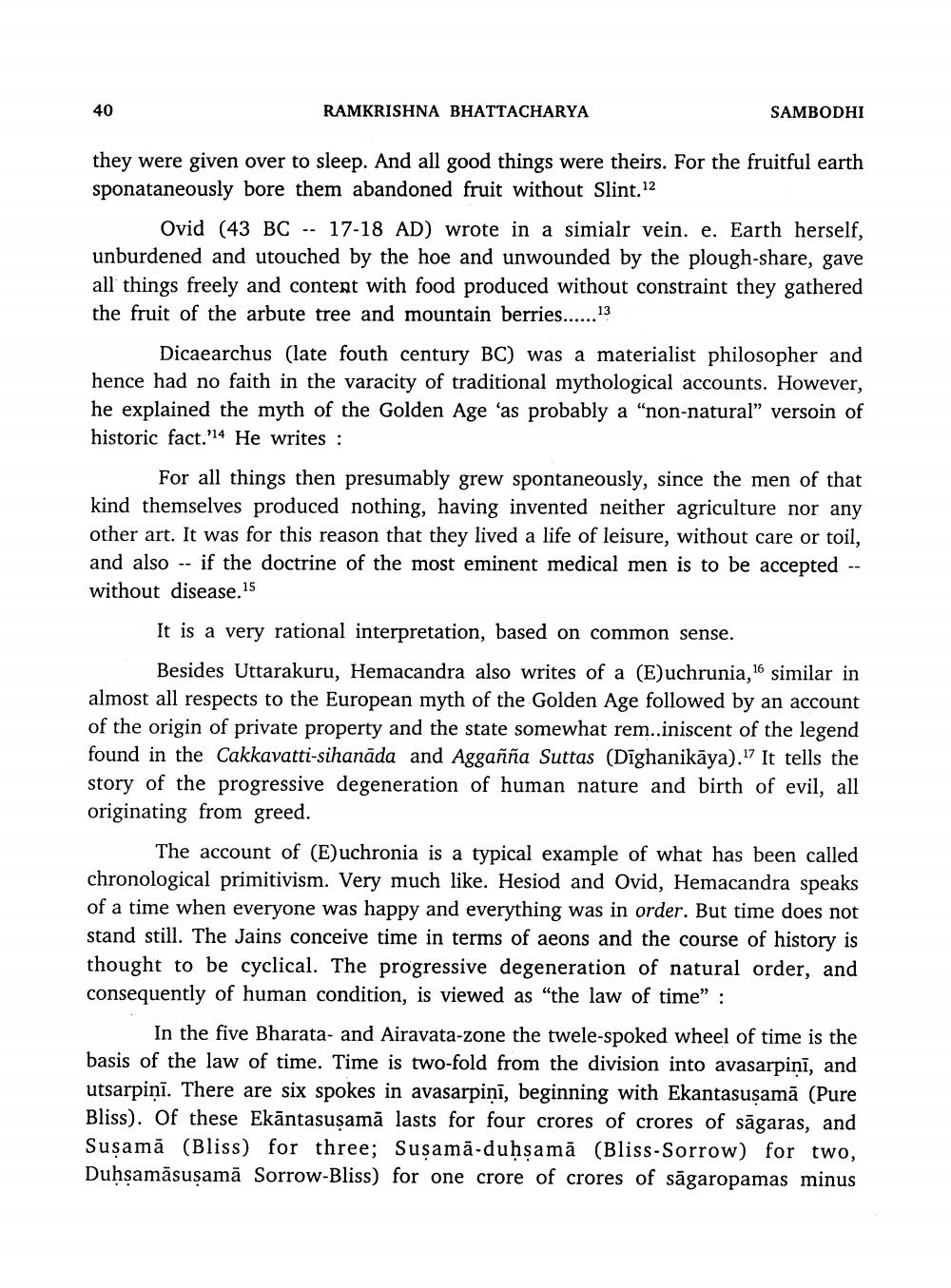________________
40
RAMKRISHNA BHATTACHARYA
SAMBODHI
they were given over to sleep. And all good things were theirs. For the fruitful earth sponataneously bore them abandoned fruit without Slint.12
Ovid (43 BC -- 17-18 AD) wrote in a simialr vein. e. Earth herself, unburdened and utouched by the hoe and unwounded by the plough-share, gave all things freely and content with food produced without constraint they gathered the fruit of the arbute tree and mountain berries......13
Dicaearchus (late fouth century BC) was a materialist philosopher and hence had no faith in the varacity of traditional mythological accounts. However, he explained the myth of the Golden Age 'as probably a "non-natural” versoin of historic fact.'14 He writes :
For all things then presumably grew spontaneously, since the men of that kind themselves produced nothing, having invented neither agriculture nor any other art. It was for this reason that they lived a life of leisure, without care or toil, and also -- if the doctrine of the most eminent medical men is to be accepted -- without disease.15
It is a very rational interpretation, based on common sense.
Besides Uttarakuru, Hemacandra also writes of a (E)uchrunia, 16 similar in almost all respects to the European myth of the Golden Age followed by an account of the origin of private property and the state somewhat rem..iniscent of the legend found in the Cakkavatti-sihanāda and Aggañña Suttas (Dīghanikāya). It tells the story of the progressive degeneration of human nature and birth of evil, all originating from greed.
The account of (E) uchronia is a typical example of what has been called chronological primitivism. Very much like. Hesiod and Ovid, Hemacandra speaks of a time when everyone was happy and everything was in order. But time does not stand still. The Jains conceive time in terms of aeons and the course of history is thought to be cyclical. The progressive degeneration of natural order, and consequently of human condition, is viewed as “the law of time” :
In the five Bharata- and Airavata-zone the twele-spoked wheel of time is the basis of the law of time. Time is two-fold from the division into avasarpinī, and utsarpini. There are six spokes in avasarpinī, beginning with Ekantasuşamā (Pure Bliss). Of these Ekāntasusamā lasts for four crores of crores of sāgaras, and Susamā (Bliss) for three; Susama-duhsamā (Bliss-Sorrow) for two, Duhsamāsusamā Sorrow-Bliss) for one crore of crores of sägaropamas minus




